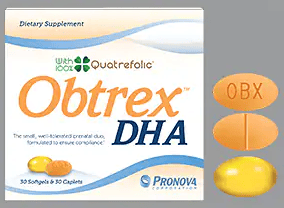This is an automatically translated article.
Asparagus is a plant that is used as a vegetable in daily meals. There are many uses surrounding asparagus that have been found, but there are no studies to confirm it. So is eating asparagus harmful? Who shouldn't eat asparagus has become a matter of great concern.1. Nutritional Overview of Asparagus
According to research, asparagus contains a lot of vitamin K and folate, but it can't be used comfortably, but let's balance it in the menu. In addition, some experts say that eating asparagus can secrete anti-inflammatory nutrients. In addition, the amino acid asparagin, which plays a role in improving brain function, also appears in this food.Although the nutritional source of asparagus is quite abundant, if processed incorrectly, they will be lost. Therefore, additional research on the processing process is needed to ensure the natural amount of nutrients in this plant.
2. Benefits of using asparagus
According to current statistics, there are many health benefits of asparagus. However, this result is based on only a few individuals used. In terms of medicine, there is still no exact conclusion about the use of asparagus for human health.Improves heart health According to user experience, asparagus seems to be quite positive for our health. Especially vitamin K which has the function of improving the problem of hemophilia. At the same time, other nutrients combine and reduce the risk of heart disease. In addition, 7% of the fiber requirement is provided by asparagus, which brings significant benefits to the body.
Stabilize blood sugar index High blood sugar is not a strange problem. In particular, vitamin B6 is a warning substance to pay attention to in people with diabetes or low blood pressure. However, if you have a healthy body, combining the use of asparagus can bring many benefits thanks to the ability to adjust flexibly.
Reduce the risk of diabetes With anti-inflammatory and antioxidant properties, asparagus is a good food with effective disease prevention. When using asparagus, beta cells in the pancreas are produced so that the body secretes insulin. This is the use that explains why eating asparagus can limit the risk of diabetes.
Natural skin beauty Our skin is the most affected part of the body. It is also susceptible to harmful environmental influences. Asparagus contains an ingredient called glutathione, commonly used in skin creams. However, eating asparagus helps the skin to be protected or not is still a question.
Purify and limit kidney stones Asparagus is considered a natural diuretic. When using this food will provide the body with water to flush the bladder. Therefore, the excess salt or residue will be eliminated. Especially for people with signs of high blood pressure or edema, they should use it.
Improved bladder function also reduces the risk of kidney stones. However, there are some cases where asparagus should not be used. Therefore, you need to learn carefully or consult an expert before using.
Folate supplements for a healthy pregnancy Asparagus contains folate, a substance that is essential for pregnant women. Thanks to an abundant source of folate, you will prevent neural tube defects or spinal cord fractures for the fetus. At the same time, pregnant and breastfeeding women, if supplemented with folate, will limit the risk of common postpartum memory loss.

Ai không nên ăn măng tây là thắc mắc của nhiều người
Promotes immune system function in the body In asparagus, studies have found saponins. This ingredient in asparagus is easily soluble in both fat and water. Moreover, this substance will inhibit the inflammatory molecule and promote the activity of white blood cells.
3. Is eating asparagus harmful?
Is eating asparagus harmful? In the immediate future, it is not possible to find out the dangers of using asparagus on the majority of consumers. However, when you eat too much, you will encounter problems such as bloating, urine with an unpleasant smell.Some people who are allergic to celery, leeks.... also have an increased risk of allergy to asparagus. Therefore, you need to pay attention to minimize symptoms such as: runny nose, rash, difficulty breathing, blisters around the eyes or swelling in the mouth.
4. Who doesn't eat asparagus
Pay attention when you eat a small amount of asparagus has appeared stomach pain. This could be a sign that you have fructan intolerance. This symptom is somewhat similar to the symptoms of gluten sensitivity, so it is easy to misdiagnose.
Ai không được ăn măng tây? Người có biểu hiện dị ứng với nhóm rau họ Alliaceae cũng sẽ dị ứng với măng tây nên không được ăn măng tây
Ợ Slight Indigestion Abdominal Distension Increased Tension Diarrhea When you have this symptom, you need to quickly go to the health facility for examination for early treatment. In addition, some people who are allergic to the Alliaceae family will also be allergic to asparagus. This is the object that should not eat asparagus. Moreover, if there is a family history of allergies, you need to pay attention to avoid cross-reactivity.
In raw asparagus can produce about 6 compounds that cause allergic problems for the body. When you have an allergy, it affects your skin, throat, nose or lungs. Allergic reactions can cause anaphylaxis or threaten your own life.
So, who can't eat asparagus the article has given you some reference information. Because this food contains both benefits and harms, you need to seek the advice of a nutritionist if your body appears abnormal. The reactions when eating asparagus will cause extremely dangerous harm to health. If you experience side effects, quickly go to a medical facility for support. At the same time with a fructan allergy or intolerance, you need to rest to recuperate.
If you have any questions related to the topic of nutrition for the body that need advice from a doctor, you can leave your question in the ASK VINMEC DOCTOR section directly on the hospital website. Your question will be sent to the doctor and you will receive a consultation as soon as possible!
Please dial HOTLINE for more information or register for an appointment HERE. Download MyVinmec app to make appointments faster and to manage your bookings easily.
Reference source: livescience.com, livestrong.com












